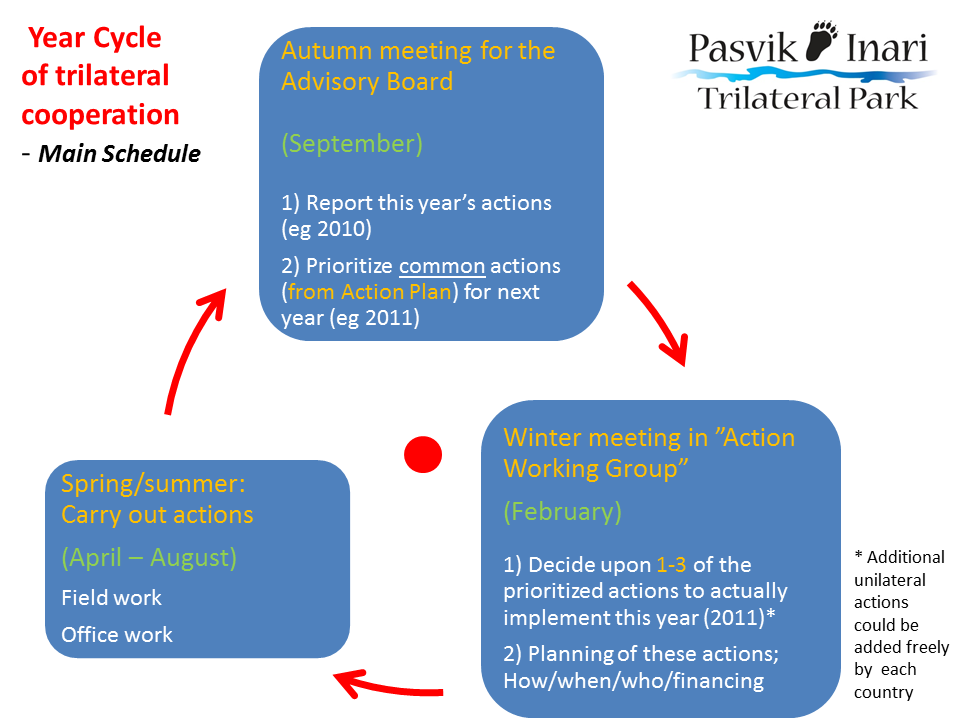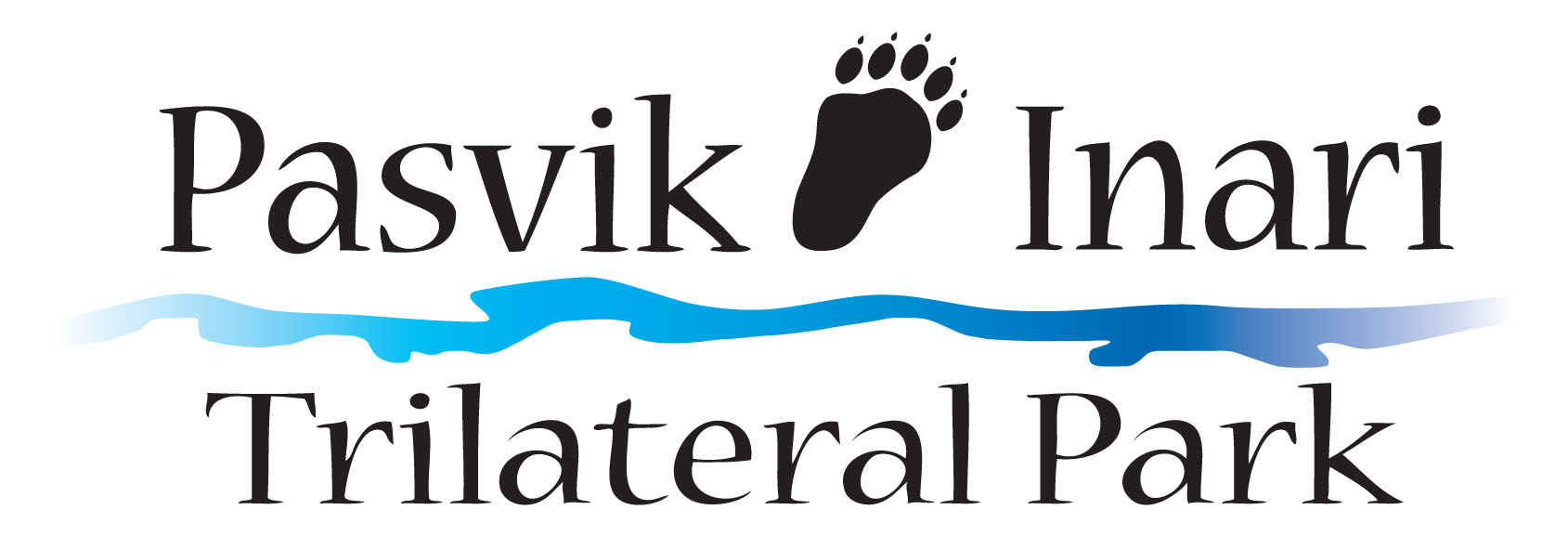Case Study
How to implement, coordinate and manage trilateral cross-border nature protection cooperation in practice?
Contact name
Tiia Kalske
Institution name
Office of the County Governor of Troms and Finnmark, Norway
Region & country
Pasvik-Inari Trilateral Park; Finnmark in Norway, Murmansk region in Russia and Lapland in Finland
Summary
Pasvik-Inari Trilateral Park brings together three countries, seven protected areas (in 2020) and five management organizations active in the transboundary nature protection cooperation. The first joint action plan covered the years 2008‒2018, and the current action plan is for the years 2019‒2028. The Annual cycle gives structure to the implementation of the action plan and timetable for two core groups established. Trilateral working group, which meets in spring and in autumn, coordinates the implementation of joint activities. The Trilateral Advisory Board approves the results from the current year in its annual meeting in the autumn. Advisory Board as well decides over the prioritized activities from the action plan for the next year.

Annual working cycle in Pasvik-Inari Trilateral Park cooperation
County Governor in Troms and Finnmark
Background of the project
International cooperation on nature conservation in Pasvik, Pechenga and Inari area dates back to 1990’s. Since then annual meetings, field trips and sharing knowledge and information have taken place. Through joint project, “Promotion of nature protection and sustainable nature tourism in the Inari-Pasvik area”, funded by EU Interreg III A North Kolarctic neighborhood and Tacis programs in years 2006‒2008, the cooperation was complimented with long-term results and intensified working methods.
The good will, interest in transboundary cooperation as well as devoted organisations and people give an excellent base for successful international cooperation. A more structured, formal and scheduled approach was needed to anchor the transboundary cooperation to annual budgets and almost every-day lives of organisations in three countries.
Solution and actions taken
Action plan is a multiple operational tool for cooperation. It contains approved objectives and specific actions for achieving the goals. There is timetable for implementation of different activities. Sources for funding are also discussed. In order to keep the coordination of trilateral and transboundary cooperation simple and effective, an annual cycle was created. Two trilateral groups – working group and advisory board – have their annual meetings and tasks according to agreed schedule.
The current action plan with its more than 60 activities was formed in several workshops. The implementation of it is based on a follow-up document and working group’s work. Transboundary working group has committed members from the managing authorities of the trilateral park. Advisory board was formed in a trilateral project in 2006, and after the project ended, advisory board has continued to have its annual meetings.
Other institutions or parties involved
Pasvik-Inari partners: County Governor in Troms and Finnmark and Øvre Pasvik National Park board (NO); Pasvik Zapovednik and Ministry of Nature Resources and Ecology of the Murmansk region (RU); Metsähallitus, Parks & Wildlife Finland (FI)
Municipalities: Sør-Varanger (NO), Inari (FI), Nikel administration (RU)
Regional authorities: Ministry of Natural Resource and Ecology of Murmansk region / Tourism Division (RU); Centre for Economic Development, Transport and the Environment in Lapland (FI)
Results
The trilateral transboundary cooperation stands on solid ground and the common work is well structured. The workgroup has developed into an international team where the responsibilities are easily shared according to personal and national strengths. The action plan is a source of inspiration when new transboundary projects are being planned. The action plan guides the cooperation towards our vision: “Pasvik-Inari Trilateral Park is a unique cooperation for the benefit of nature and people”.
Challenges
Transboundary trilateral work takes time, and different organizational structures and cultures need to be taken into consideration. English is spoken as a second language, and some misunderstandings might occur along the way. But these issues are no barriers.
Lessons learned
Curiosity towards reforms and intensive transboundary work enable the trilateral cooperation to develop. The sparks leading to change can be different persons and their ideas or best practices found out in organisations somewhere else. Working face to face and time used for discussion and exchange of ideas are corner stones for successful transboundary cooperation.
Contact name
Tiia Kalske
Institution name
Office of the County Governor of Troms and Finnmark, Norway
Website(s)
